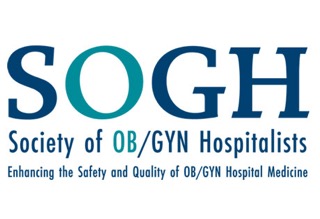Page 6 of 6
ROUNDTABLE DISCUSSION: SOGH Annual Clinical Meeting (ACM) 2016OB/GYN hospitalists face diverse challenges. The 2016 ACM committee tackled this issue during a lunchtime networking session last year, inviting attendees to discuss and share their experiences in small group settings. Below are the highlights on one such session. GYN Challenges for the OB/GYN Hospitalists Is it necessary for the OB/GYN hospitalists to maintain their surgical skills? If so, how will you do this? For those who choose not to maintain their surgical skills, will this prove to be an obstacle in gaining hospital privileges elsewhere? These were the questions posed by attendees at the roundtable discussion. Below is a synopsis of the discussion. Most agree that the maintenance of surgical skills is important to career longevity. The biggest challenge is maintenance of gyn surgical skills. The more common gyn surgical cases performed by the OB/GYN hospitalists are surgical management of ectopic pregnancies, ovarian torsions, D&C, and ovarian cystectomies. Most participants averaged 3-4 such cases per year, total. Possible solutions to increasing gyn surgical exposure are to scrub with other obstetricians or urogyn physicians in the community. The issue of compensation or malpractice coverage for such cases was an obstacle for some. Another suggestion was the establishment of sim labs which focused on gyn surgeries. Currently, there is no benchmark for the number of cases necessary to show competency in surgical skills. It was suggested that data be collected that shows the average number of cases done by private practitioner and that the data be used as a guide to the OB/GYN hospitalists to determine a goal for the number of gyn cases necessary to maintain privileges.
OB/Gyn Hospitalist Fellowships OB/GYN Hospitalist fellowships are recent additions to the field of OB/GYN medicine. The two OB/GYN fellowship programs currently available are at Winthrop University Hospital in Mineola, NY and University of California, Irvine program. No standard currently exists for the OB/GYN hospitalists fellowships. Thus far, they are not yet ABOG certified fellowships and neither program has hit its ten year anniversary as yet. Still, the interest is expanding and the field shows promising signs of growth. During the SOGH 2016 Annual Clinical Meeting, a round table discussion was held on the topic of OB/GYN hospitalist fellowship. Present for the discussion were representative from the UC, Irvine fellowship as well as ACM attendees not affiliated with an OB/GYNhospitalist fellowship. The discussion focused on how to start a program, program structure and suitable recruits. Here is a synopsis of that discussion. In order to establish an OB/GYN hospitalist fellow program the program directors or creators will need to establish a curriculum or milestones for the participants. The UC Irvine representative shared willingness in sharing their model as a starting point. In the case of UC, Irvine, the fellowship program provides support for their other training programs such as their OB/GYN residents and CNM. The fellows also support their existing OB/GYN hospitalist program. Fellows may be recruited directly out of residency, private practice or those who are re-entering the work force following a leave. Most fellows are recruited directly out of residency The fellows through their training will be involved in rotating through ICU, perinatology and ultrasound. They along with the hospitalists are involved in hospital safety committees, establishing quality measures, policy and procedures. The hospitalists and fellows also work on establishing sim sessions and simulation labs. Fellows are involved in the training of hospital leaders and division chairs. The current work week is 50-60 hours with 12 or 24 hour shifts. To achieve cases for board certification, the fellows staff the residents’ ob/gyn clinic which generates surgical cases. In some instances, the fellows will act as an attending. Fellows may opt to perform research in their area of interest during a second year. There is some talk of creating a dual degree program such as a fellowship along with an MBA. |

